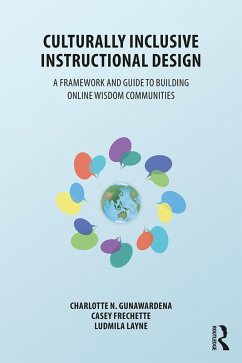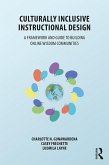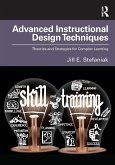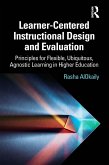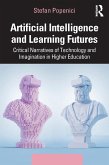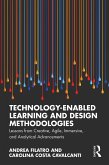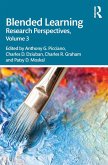Dieser Download kann aus rechtlichen Gründen nur mit Rechnungsadresse in A, B, BG, CY, CZ, D, DK, EW, E, FIN, F, GR, HR, H, IRL, I, LT, L, LR, M, NL, PL, P, R, S, SLO, SK ausgeliefert werden.
-Marina McIsaac, Director of International Relations at the Center for the Advancement of Research and Development in Educational Technology and Professor Emerita at Arizona State University, USA
"The two greatest challenges facing us are clashes resulting from different cultural perspectives and the need to acquire wisdom to deal effectively with the environmental challenges created by 8 billion humans living together on this planet. This books speaks directly to both of these challenges. Only if learning matches, reflects, and enhances our cultural experience will it empower us to meet global challenges. The book is a must-read for anyone designing learning for both global or local contexts."
-Terry Anderson, Professor Emeritus in the Centre for Distance Education at Athabasca University, Canada
"This book offers a design framework to address and challenge persistent gaps faced by marginalized students while holding high expectations for all educators. WisCom is a student-generated framework that not only applies to everyday instructional design tasks but also helps transform learners to change themselves and the world. A must-read for instructional designers!"
-Afsaneh Sharif, Distance/Open Learning Director at the Canadian Network for Innovation in Education and Faculty Liaison of Project and Faculty Partnerships at the University of British Columbia, Canada
"This book provides a much-needed framework for placing the elusive but central concept of culture in the core of the process of designing online learning communities. Dr. Gunawardena and her colleagues present a living model of cultural communication that emanates from sharing perceptions and experiences among learners from diverse cultural backgrounds. Embedded in this formative process is a well-structured learning design strategy and a specific method of development and evaluation for building wisdom communities. The book embodies the clarification and resolution of global cultural experiences that are often perplexing and even contradictory by employing specific collaborative learning and mentoring methods that lead learners to wisdom-the apex of their educational experience."
-Farhad Saba, Professor Emeritus of Educational Technology at San Diego State University, USA
"In Culturally Inclusive Instructional Design, the authors have shared their longitudinal design processes and functional design conjectures of an online course that highlights and integrates cultural diversity in collaborative inquiry-based learning. The book presents a solid discussion of the theoretical foundations of online learning communities and culture, and a detailed description of each core component of the culturally inclusive online course design model. Specific design protocols and exemplary materials have supported the design conjecture discussion. The book will help to enrich the design knowledge base of online learning community development and culturally inclusive instructional design."
-Fengfeng Ke, Associate Professor of Educational Psychology and Learning Systems at The Florida State University, USA

